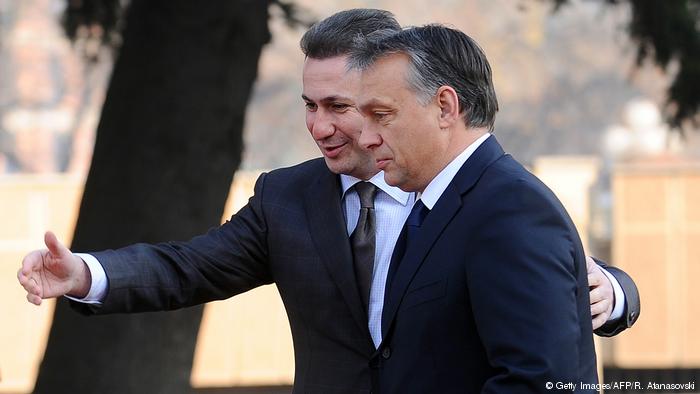On Tuesday, Hungary formally granted asylum to convicted felon and former Prime Minister of Macedonia Nikola Gruevski. Hungarian Foreign Ministry officials actively aided the disgraced former politician in escaping from Macedonia without a valid passport prior to the start of a two year prison sentence for corruption. The Hungarian Immigration and Asylum Office, according to a report in the pro-government Magyar Idők daily, determined that the “impartiality of the justice system in Macedonia is in question” adding that the “incidents of unlawful conduct have reached such proportions that they are tantamount to persecution.”
The Hungarian state’s behaviour with respect to aiding and abetting a fugitive would have been what one would expect from a criminal entity. Hungary managed Mr. Gruevski’s illegal passage across international borders. Mr. Gruevski arrived in Tirana, Albania, on or around November 10th, at which point he contacted the Hungarian embassy. This is where he also submitted his application for amnesty. From here, the disgraced politician travelled by car through Montenegro and Serbia, crossing into Hungary on November 12th. According to Deutsche Welle, diplomats and staff from the Hungarian embassies in Albania and Montenegro personally transported the fugitive in their embassy vehicles through the Balkans, en route to Hungary.
Four Hungarian diplomats were named who reportedly aided Mr. Gruevski in escaping and traveled with the fugitive. These include Consul Antal Kulcsár and Csaba Várfalvai (Tirana) and Deputy Head of Mission Zoltán Császár and Consul Csaba Félegyházi from the Hungarian mission in Podgorica. The deputy head of mission is second in line at an embassy, directly following the ambassador. European Union officials would do well to consider the ramifications of some of the highest ranking civil servants of an EU member state directly engaging in behaviour that is becoming of a rogue state.
Mr. Gruevszki is a personal ally of Viktor Orbán. The Hungarian prime minister campaigned for him and the Macedonian leader, like his Hungarian counterpart, launched a “Stop Soros” campaign aimed at attacking NGOs in his country. It is also conceivable that by his involvement with the Gruevski affair, Prime Minister Orbán is flexing his political muscle in southeastern Europe in a manner that is most appealing to Moscow.
Macedonia has since summoned the Hungarian ambassador in Skopje and has handed him the Macedonian government’s letter of protest. Moreover, Skopje is demanding Mr. Gruevski’s extradition from Hungary, but they undoubtedly realize that there is little to no chance that this will occur.




